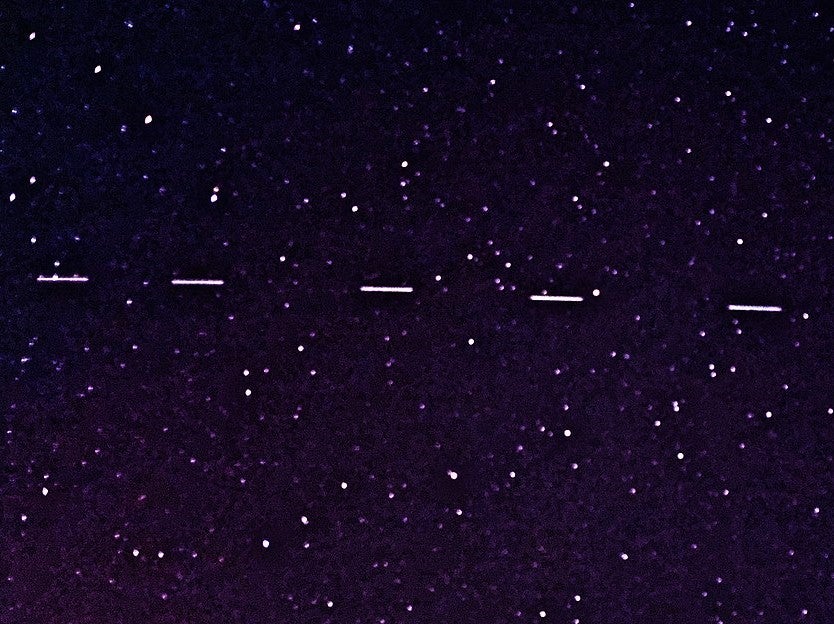SpaceX’s ‘monopolisation’ of space risks a ‘catastrophic scenario’, claims satellite competitor
Elon Musk currently controls more than a third of all satellites in orbit through Starlink

Elon Musk’s thousands of SpaceX satellites threaten a “de-facto monopolisation” of space, the head of European space company Arianespace has argued.
SpaceX, in developing its Starlink constellation of spacecrafts, asked for authorisation from the United States Federal Communications Commission to launch up to 42,000 satellites.
"We want space to remain accessible for human activities... but we refuse a Wild West space. It really is our responsibility to ensure that low orbit (less than 1,000 kilometres or 625 miles) above the Earth is sustainable long-term," CEO Stéphane Israël told a UN-sponsored sustainable space development conference in Geneva, as reported by Agence France-Presse.
"SpaceX has already deployed 1,677 satellites for Starlink, which means that today, of all satellites in operation, 35 percent belong to one man – Elon Musk”, Israël continued, “And if you include satellites of more than 50 kilograms, that's more than 50 percent."
The CEO added that, seeing the risks of several collisions in recent years, that “very quickly, we could find ourselves in a catastrophic scenario that would render this orbit impractical.”
Neither Arianespace nor SpaceX responded to The Independent’s request for comment before time of publication.
This is not the only time that allegations of the dangers of low-altitude satellites, and criticism of how government contracts are handed out, have been levied at SpaceX. In January 2021, after SpaceX asked US regulators for permission to operate its satellites at a lower altitude than it originally intended, Amazon corporate counsel Mariah Dodson Shuman reportedly told the FCC that “SpaceX has indicated that it is capable of operating its system without exceeding 580 km and has not demonstrated why such a condition should not be effective immediately”.
An Amazon spokesperson also said that the company designed its “Kuiper System to avoid interference with Starlink, and now SpaceX wants to change the design of its system. Those changes not only create a more dangerous environment for collisions in space, but they also increase radio interference for customers”.
In response, Elon Musk tweeted that it does not “serve the public to hamstring Starlink today for an Amazon satellite system that is at best several years away from operation.”
In August 2020, a report by the Satellite Constellations 1 (Satcon1) workshop found that that constellations of bright satellites like SpaceX’s will fundamentally change ground-based optical and infrared astronomy.
“We find that the worst-case constellation designs prove extremely impactful to the most severely affected science programs,” the report stated.
Join our commenting forum
Join thought-provoking conversations, follow other Independent readers and see their replies
Comments
Bookmark popover
Removed from bookmarks